Automatically update documentation with Github Actions

In some of my projects, I like to provide an accurate documentation. Which means that I want to have examples and documentation up to date.
So, when I’m updating a library or a service I’m using in my code, I need to manually find and replace all the text to reflect the changes.
For example, let say I have README.md with:
We have the following versions:
* Current is 1.0-SNAPSHOT.
* This project is tested with Elasticsearch 8.5.1.
And a .env file which I’m using to run docker compose:
STACK_VERSION=8.5.1
When you need to update a version, let say Elasticsearch to 8.5.2, you need to edit your pom.xml and also all related files like the .env file.
This can be error prone or you can just forget about a file. It would be better to just update the property somewhere and let the project automatically update the other files.
Maven resources plugin to the rescue
This can be easily done with the maven resources plugin. The only thing to write is something like that:
<properties>
<elasticsearch.version>8.5.1</elasticsearch.version>
</properties>
<build>
<resources>
<resource>
<directory>src/main/documentation</directory>
<filtering>true</filtering>
<targetPath>${project.basedir}</targetPath>
</resource>
</resources>
</build>
Any file available within src/main/documentation dir will be copy to the root project dir and filtered with the different maven properties. Define a src/main/documentation/README.md file:
We have the following versions:
* Current is ${project.version}.
* This project is tested with Elasticsearch ${elasticsearch.version}.
Define a src/main/documentation/.env file:
STACK_VERSION=${elasticsearch.version}
When processing the resources within the process-resources phase, maven will replace the maven properties by the right values:
mvn process-resources
And you will see that README.md and .env have been updated to reflect the changes if any. Actually, you won’t see anything unless you update a version. 😉
So the process is now:
- Update the
pom.xml - Run
mvn process-resources - Commit the changes
Automatic update with Github Actions
To avoid having to locally checkout a branch that has been created in Github, run the maven command and git push the changes to the branch before it can be reviewed and merged, we can use Github Actions to update our resources automatically.
Let say that we already have an action .github/workflows/pr.yml file:
name: Build the pull request
on:
pull_request:
branches: [ main ]
jobs:
build:
runs-on: ubuntu-latest
steps:
- name: Checkout code
uses: actions/checkout@v4
- name: Set up JDK 17 and Maven Central Repository
uses: actions/setup-java@v3
with:
java-version: '17'
distribution: 'adopt'
cache: 'maven'
- name: Build the project
run: mvn -B install
This is performing the following steps:
- Checkout
- Setup the JDK and Maven cache
- Build the project
We need to add the generation of the updated files. A best practice is to run this in another workflow file. So let’s create .github/workflows/update-doc.yml:
name: Update the documentation if needed
on: [ pull_request ]
jobs:
update-files:
runs-on: ubuntu-latest
steps:
- name: Checkout code
uses: actions/checkout@v4
- name: Update resources with Maven
run: mvn -B process-resources
And then we need to commit our changes. For this we will use the add-and-commit action:
- name: Update files if needed
uses: EndBug/add-and-commit@v9
with:
default_author: github_actions
message: Automatically update versions
But actually this will fail. Because we need to define that we want to have a write access to the repository:
permissions:
contents: write
packages: write
In the context of a PR, the checkout is by default done using another branch name than the real branch name. When the plugin commits the changes, it does not go to the branch associated with the PR.
On non-push events, such as pull_request, we need to specify the actual branch name of the pr as the ref for the checkout. We can also pass the repository name to the checkout action:
- name: Checkout code
uses: actions/checkout@v4
with:
ref: ${{github.event.pull_request.head.ref}}
repository: ${{github.event.pull_request.head.repo.full_name}}
Manually create a PR
Let’s update the pom.xml and update Elasticsearch version to 8.5.2:
<elasticsearch.version>8.5.2</elasticsearch.version>
Then commit it and push it to a branch. And finally create a PR:
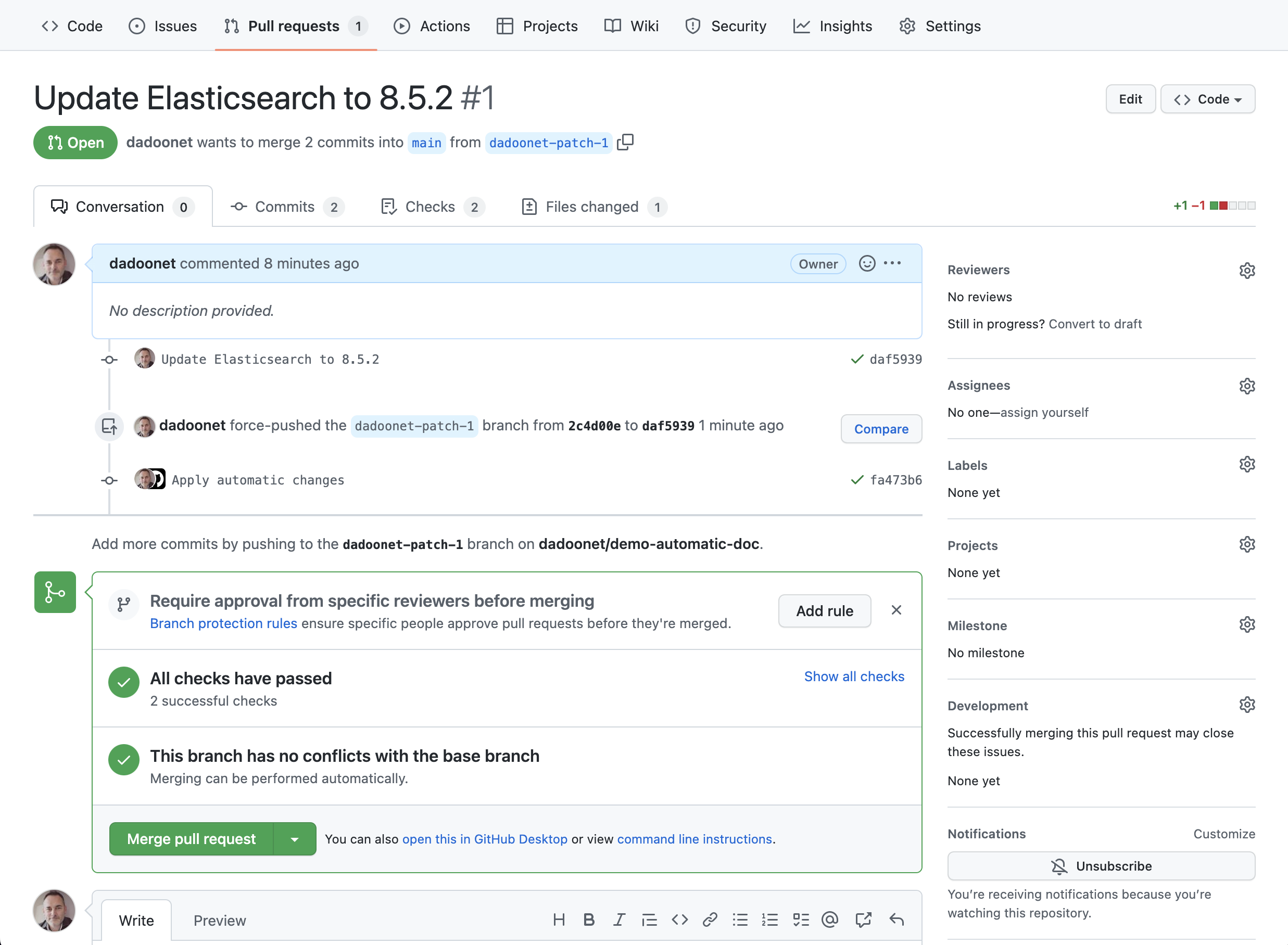
Update the version manually
So we have one single commit:
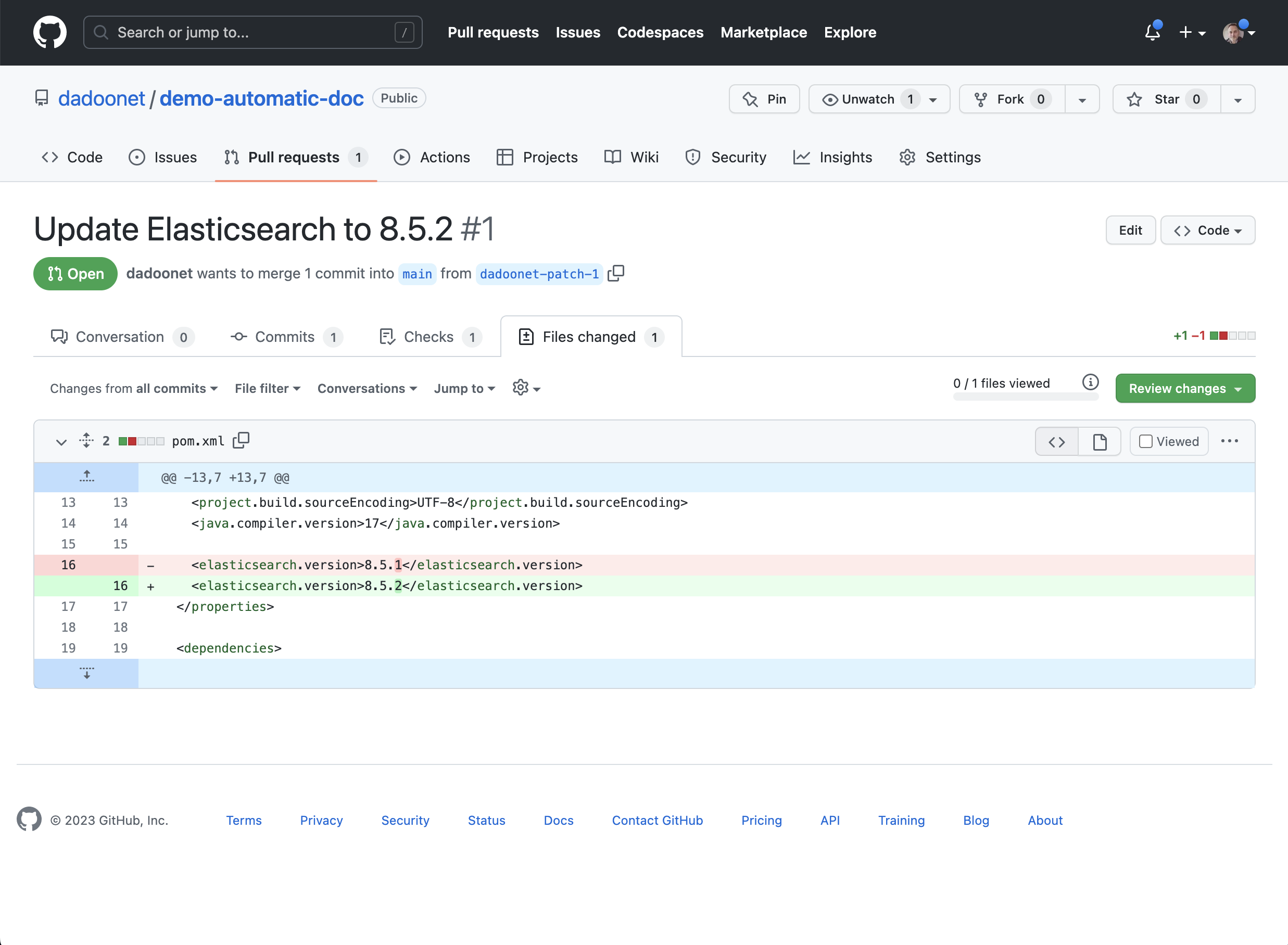
One single commit
When the Github Actions workflow starts, it updates the code, commits it and pushes it to our branch which is now updated:
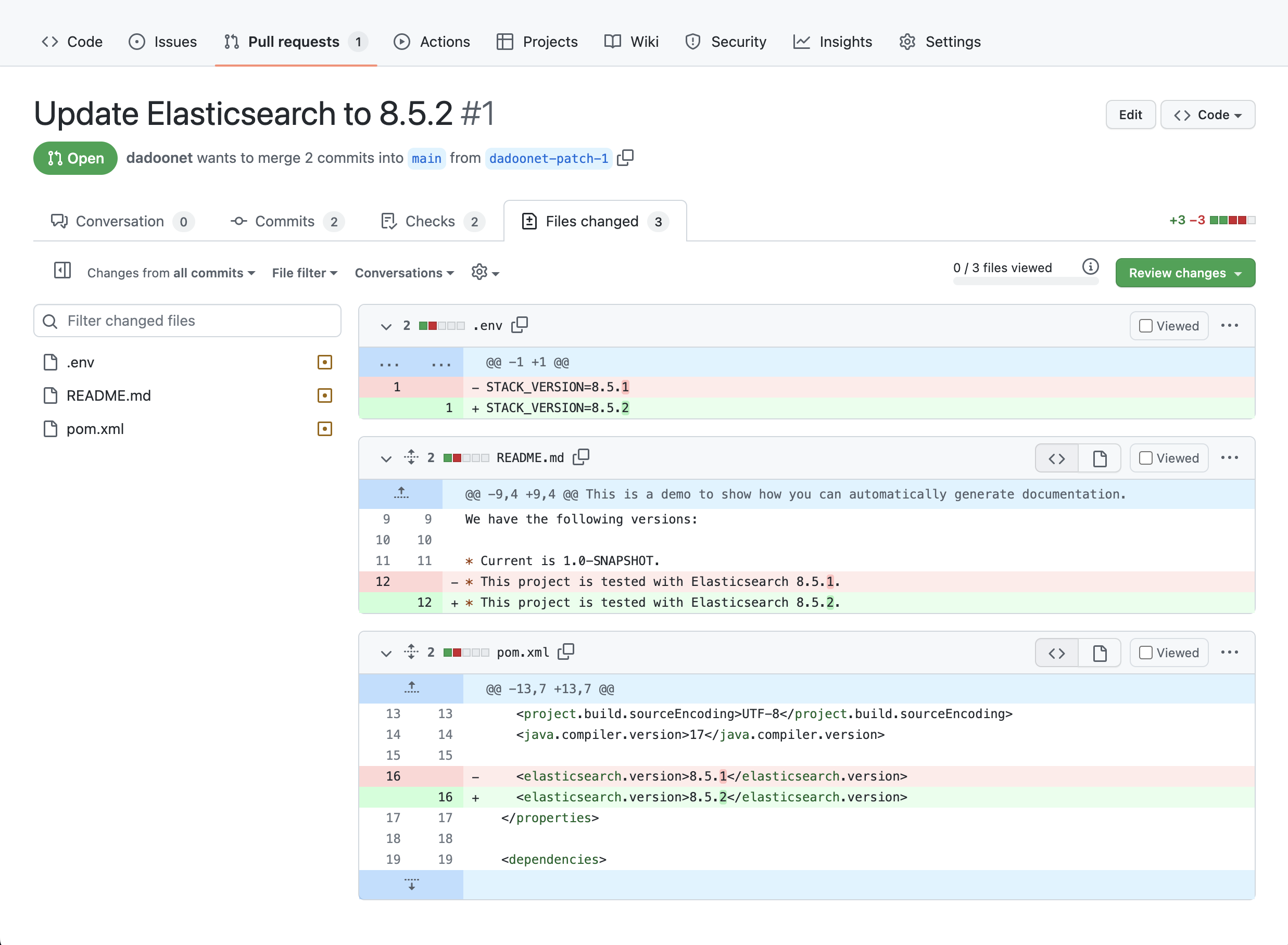
With the additional commit
Using Dependabot to update our versions
If you are using Dependabot to automatically update your libraries, the same update process should happen. If you don’t, go to the repository settings and enable Dependabot version updates:
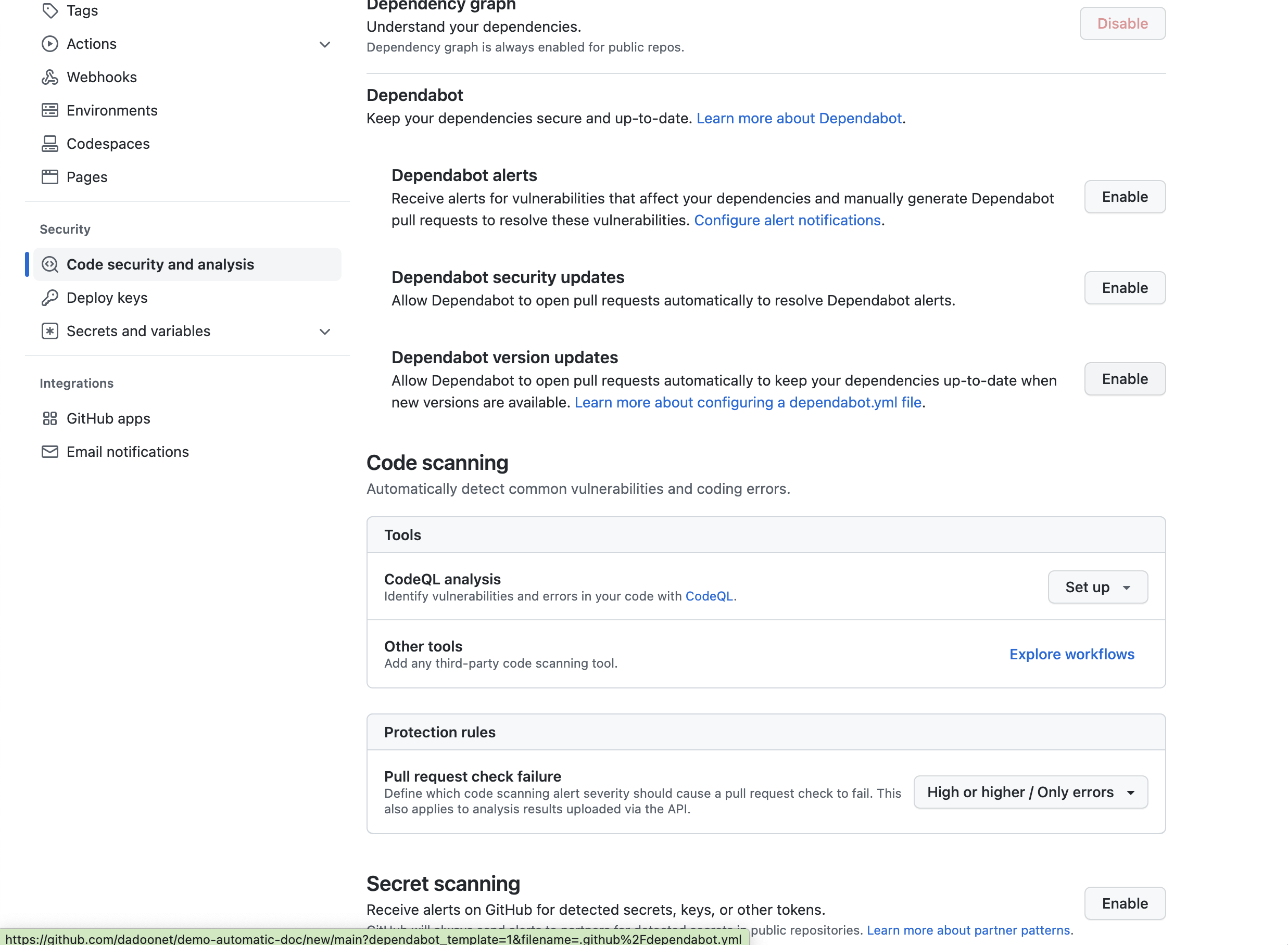
Enable Dependabot
So we have the following .github/dependabot.yml file:
version: 2
updates:
- package-ecosystem: "maven"
directory: "/"
schedule:
interval: "daily"
This automatically creates a PR when a new version is available.
Dependabot and Github actions
When we commit the changes, it does not trigger another github action call. This is due to limitations set by GitHub. This prevents us from accidentally creating recursive workflow runs. But here, we want that.
So we need to create a new Personal Access Token (PAT) instead of the default GITHUB_TOKEN. Open your Github Developper Settings and create a new Personal Access Token. It needs to have the repo and workflow scopes:
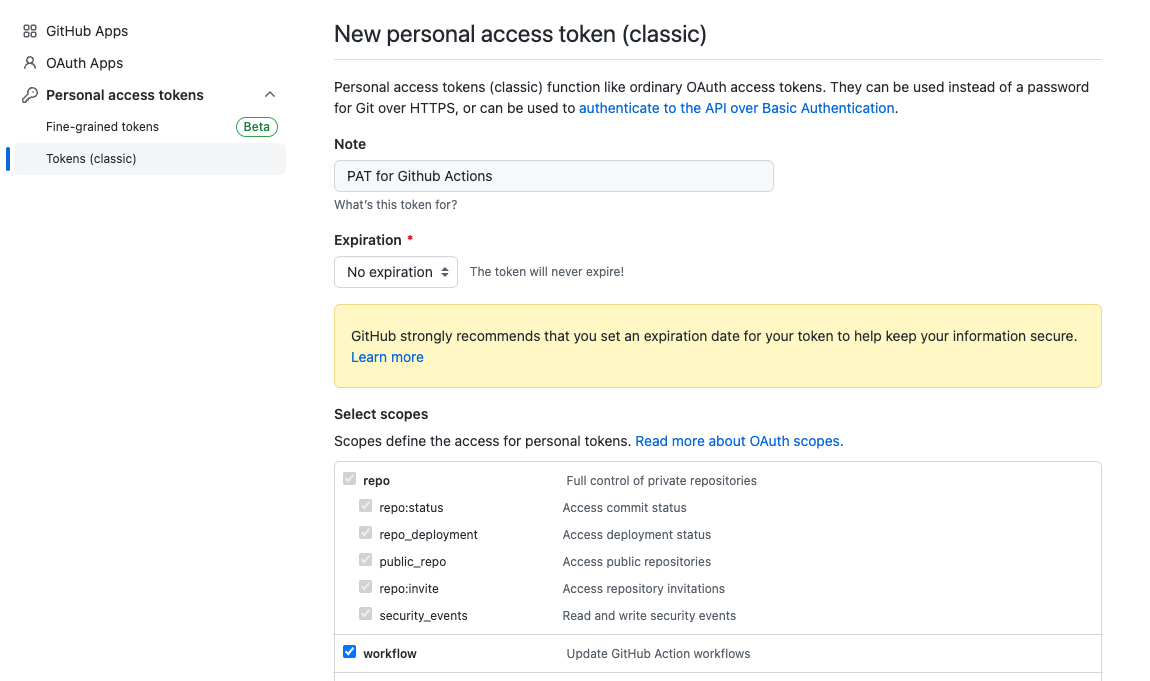
Create your Personal Access Token
Note the generated token and store it as a secret in the repository.
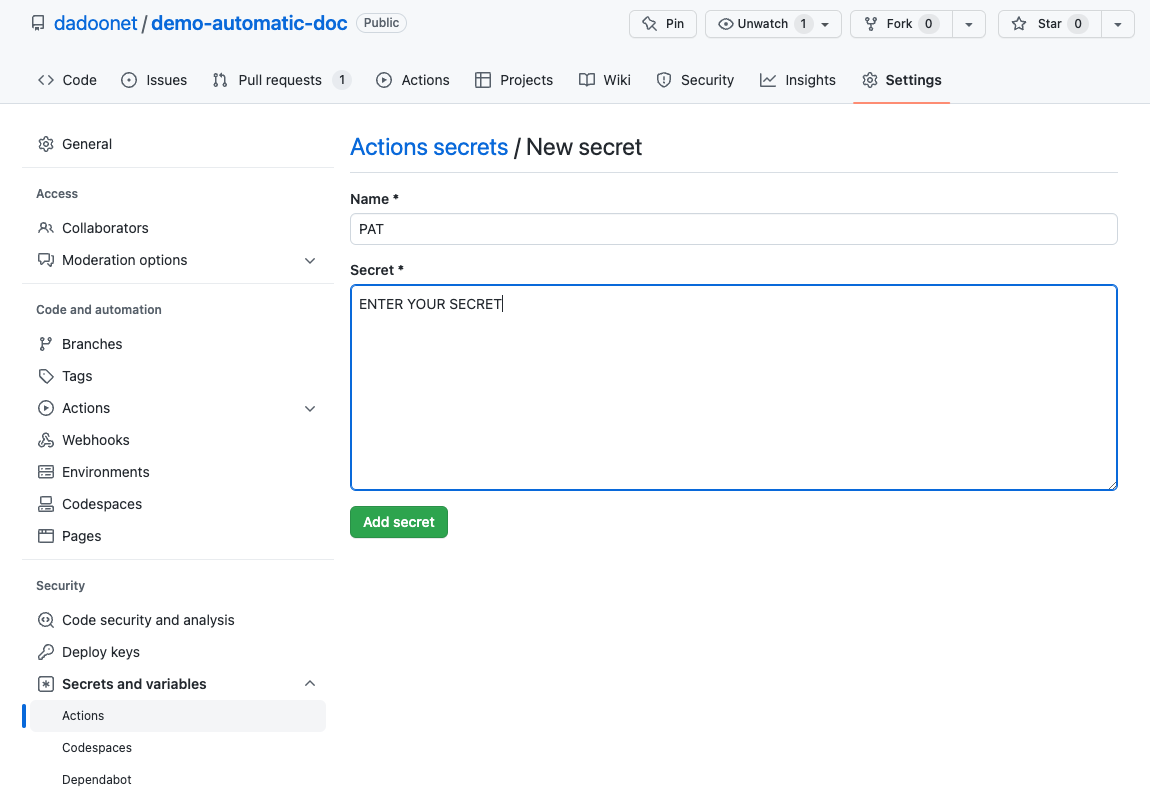
Add your new secret
Then pass the new token to the checkout step:
- name: Checkout code
uses: actions/checkout@v4
with:
ref: ${{github.event.pull_request.head.ref}}
repository: ${{github.event.pull_request.head.repo.full_name}}
token: ${{ secrets.PAT }}
Actually, when the code is running automatically from Dependabot, you can also use the github.token as the secrets.PAT is not available.
- name: Checkout code
uses: actions/checkout@v4
with:
ref: ${{github.event.pull_request.head.ref}}
repository: ${{github.event.pull_request.head.repo.full_name}}
token: ${{ secrets.PAT || github.token }}
Here is what happens when dependabot creates a PR.
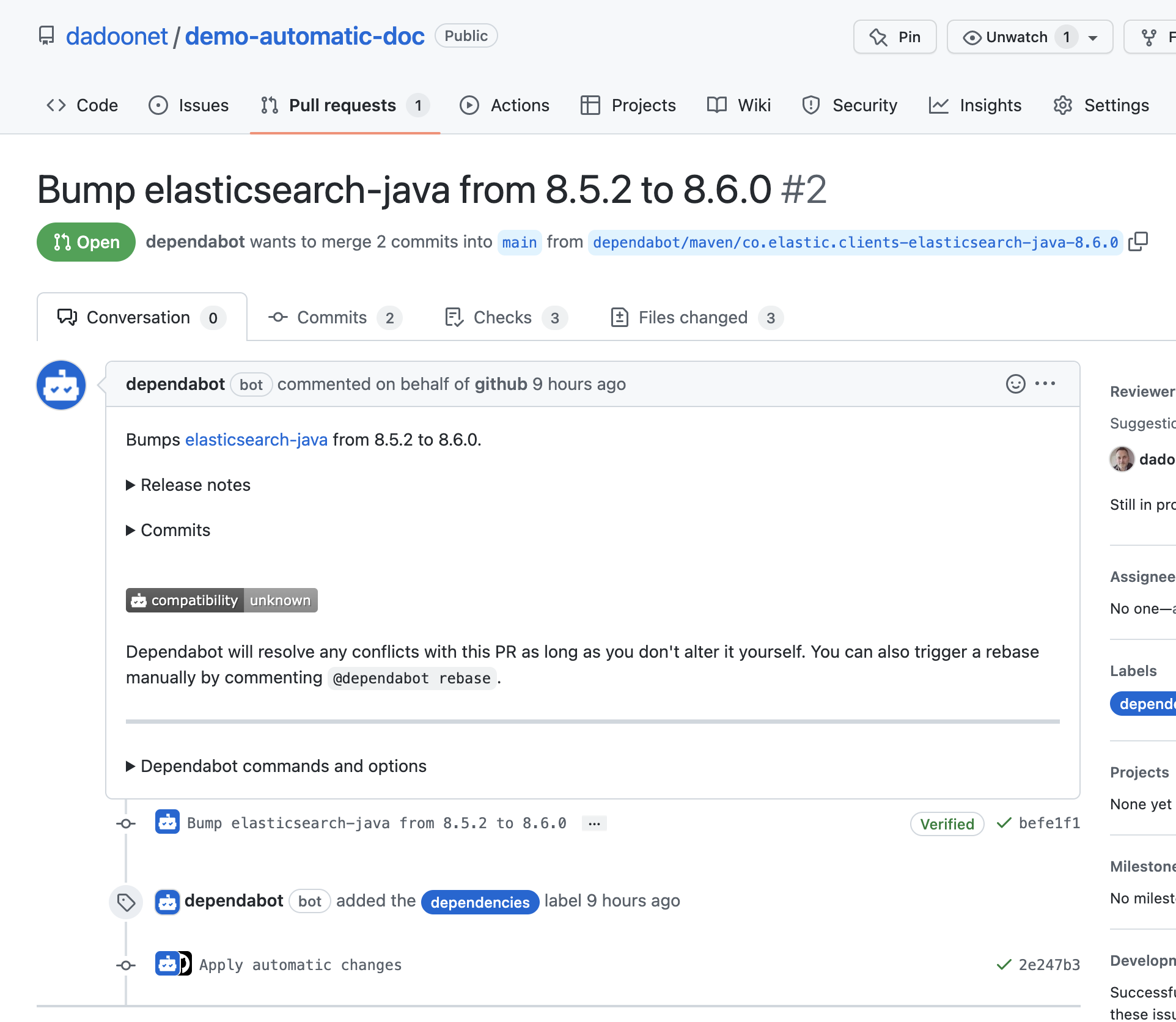
The PR
Note that few seconds after Dependabot has created the PR, it has been updated by our job:
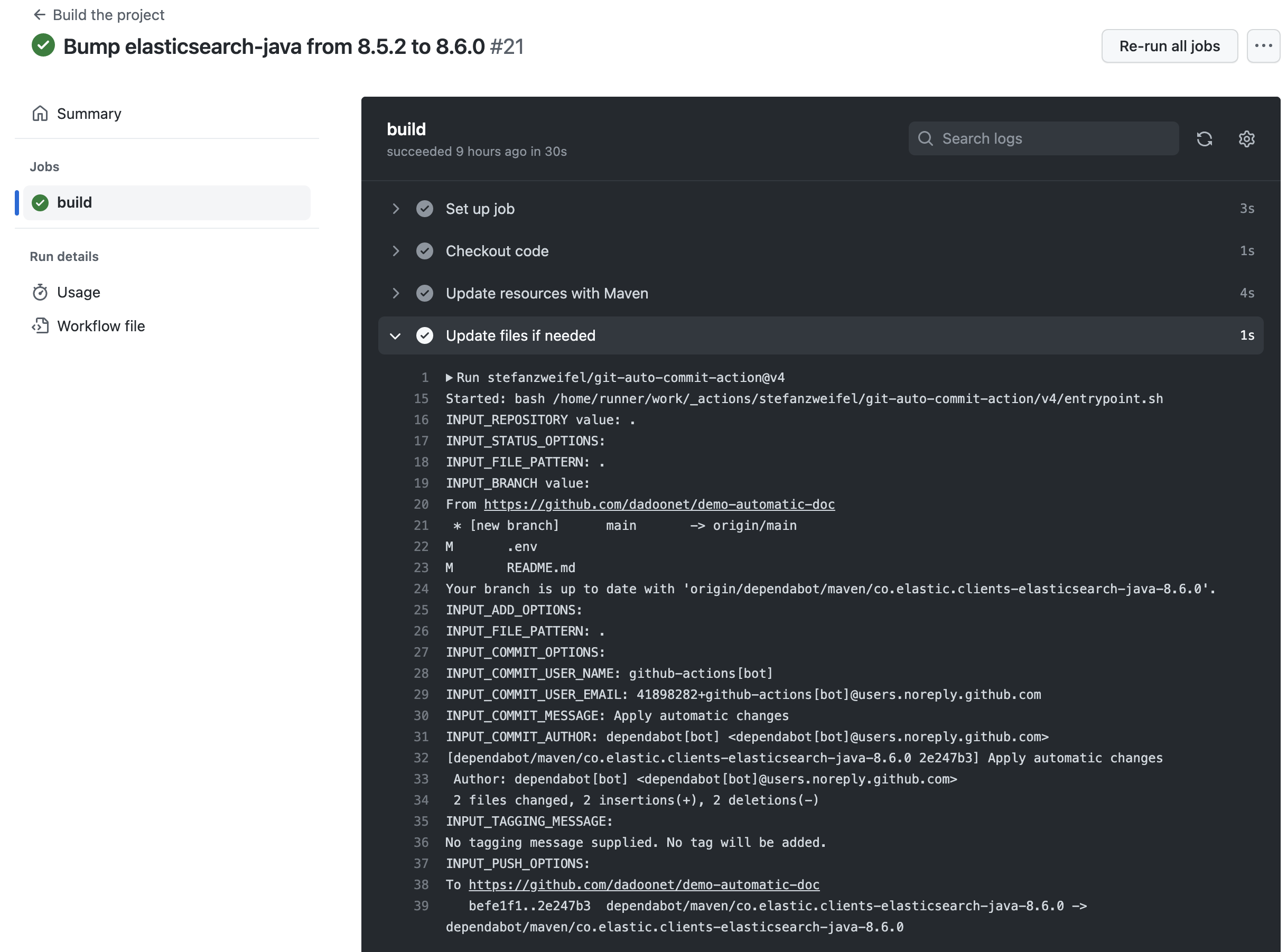
Build details
And we can see the details of the commit that has been added by Github Actions on behalf of Dependabot:
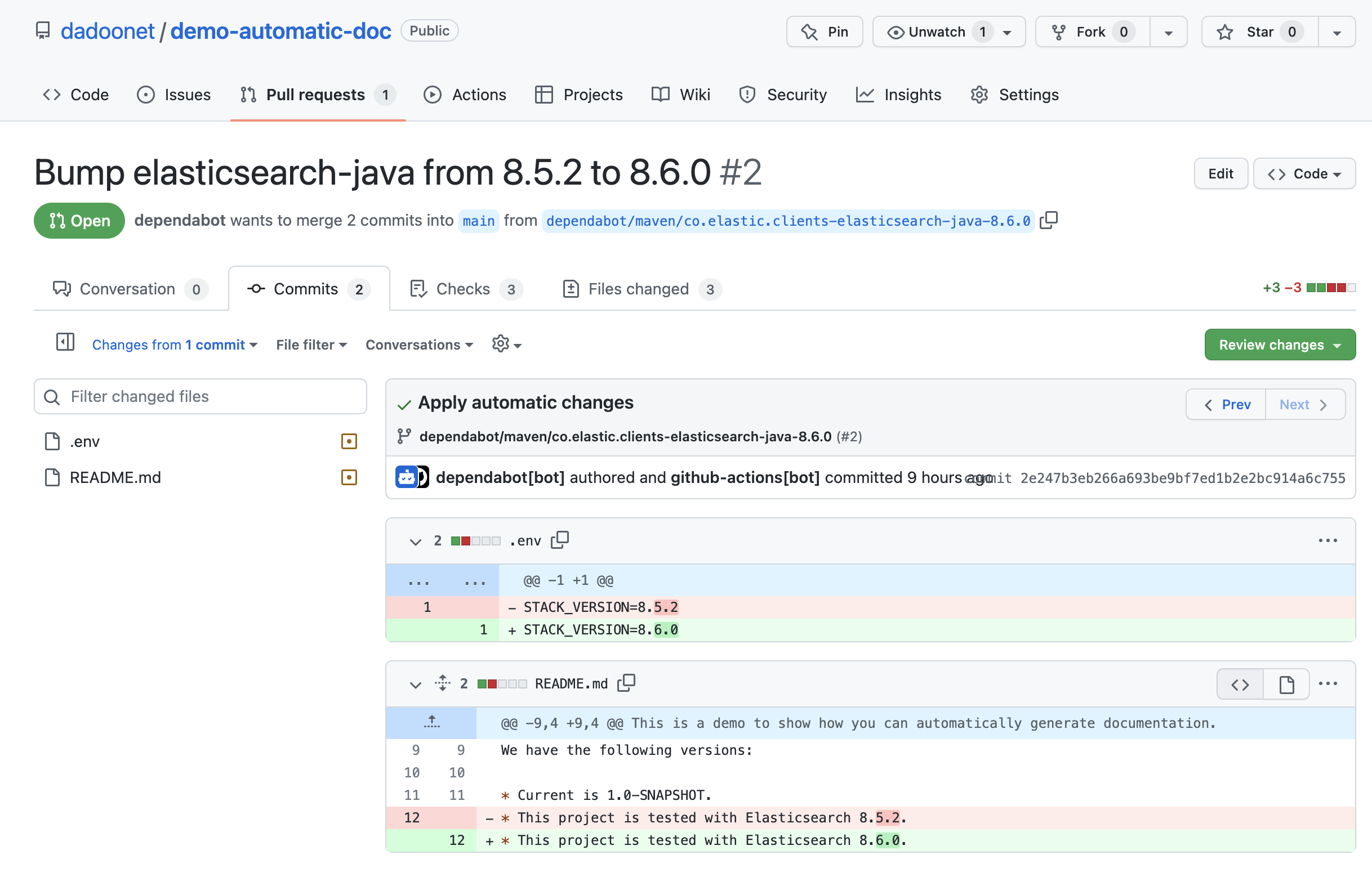
Automatically added commit
External Pull Requests
When the pull request is created from a fork, we can not push our changes to the original repository. So we need to skip the update-doc workflow.
We can detect this by comparing github.event.pull_request.head.repo.full_name and github.event.pull_request.base.repo.full_name:
if: github.event.pull_request.base.repo.full_name == github.event.pull_request.head.repo.full_name
The full workflow
The final workflow is:
name: Update the documentation if needed
on: [ pull_request ]
jobs:
update-files:
if: github.event.pull_request.base.repo.full_name == github.event.pull_request.head.repo.full_name
runs-on: ubuntu-latest
permissions:
contents: write
packages: write
steps:
- name: Checkout code
uses: actions/checkout@v4
with:
ref: ${{github.event.pull_request.head.ref}}
repository: ${{github.event.pull_request.head.repo.full_name}}
token: ${{ secrets.PAT || github.token }}
- name: Update resources with Maven
run: mvn -B process-resources
- name: Update files if needed
uses: EndBug/add-and-commit@v9
with:
default_author: github_actions
message: Automatically update versions
You can see this code in the dadoonet/demo-automatic-doc demo repository.
